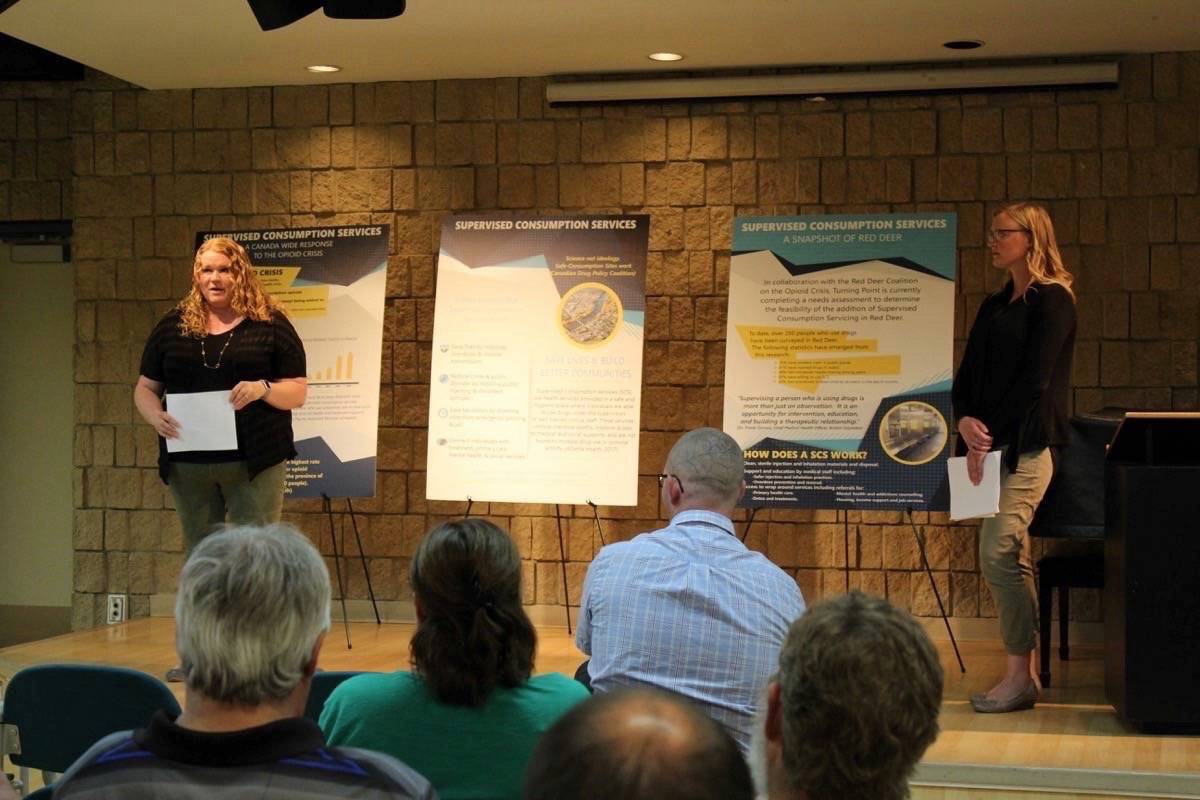Residents have voiced their questions and concerns clearly at the series of public meetings held on supervised drug consumption sites.
Turning Point Society of Central Alberta was designated as project lead and the Red Deer Coalition on the Opioid Crisis was formed to undertake a needs assessment for a supervised consumption service in the City.
Sarah Fleck, interim operations manager of Turning Point Society of Central Alberta said the sessions went well and were well attended.
“Our smallest session was probably 10 and then up to 20, but it’s brought a lot of different members of the community from business owners to professionals to just concerned community members,” said Fleck.
She said lots of people are coming with questions and concerns, the most common being concern for extension of servicing.
“One of the main concerns that we’ve seen as a common thread throughout all the sessions is really a focus on wrap around services and ensuring that clients who would come to the potential supervised consumption service would have immediate or close to immediate access to other services, such as housing, addictions treatment, counselling, detox, etc.”
She said this is something they agree with at Turning Point and realize that supervised consumption is only one piece, with the wrap around servicing being what is most important and what’s crucial to make sure this is successful.
The nine sessions, which were hosted by Turning Point in conjunction with the Red Deer Coalition on the Opioid Crisis, were held for the public to come out and express their concerns and hear dialogue on supervised drug consumption sites and what that might look like for the City.
“We’re able to provide some education and we’re not trying to change minds, we’re just trying to make sure that people’s opinions are based on what’s actually happening, and so I think it’s actually created a lot of great dialogue,” said Fleck.
She said they have been able to record a lot of the questions the community has had, and will bring them forward to the provincial body in their final report.
The questions will be compiled with common themes pulled out.
“An example of a common theme would be concern about needle debris in the surrounding area, so we write that as a theme and then we’ll have all the questions related to that underneath it.”
Fleck said that then impacts the programming model they decide on if supervised drug consumption servicing becomes a reality.
“Those questions and concerns that people have raised will actually influence policies and procedures, and the development of the program model for what supervised consumption servicing could look like in Red Deer.”
She said they will also provide all of that in a written report to Alberta Health so they can see evidence they met with the community, what the community’s concerns were and how Turning Point’s plans would reflect those concerns.



